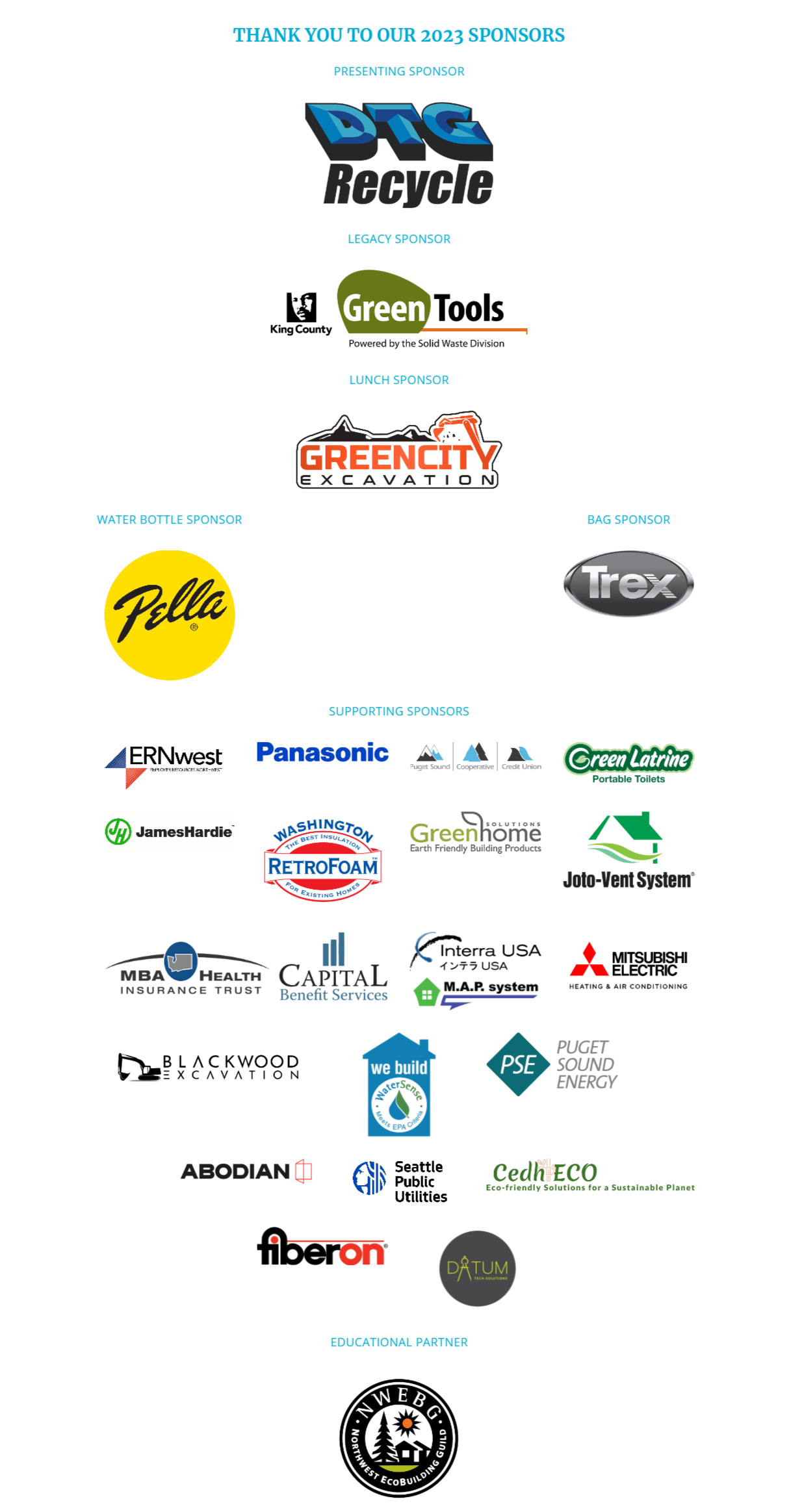The 2023 Built Green Conference, presented by DTG, was held on September 14 at the Lynnwood Event Center. We would like to extend a huge thank you to those who sponsored, presented, attended, and volunteered to make the Built Green Conference such a success. The day was filled with reunions, new connections, networking, and captivataing sessions.
Morning Keynote
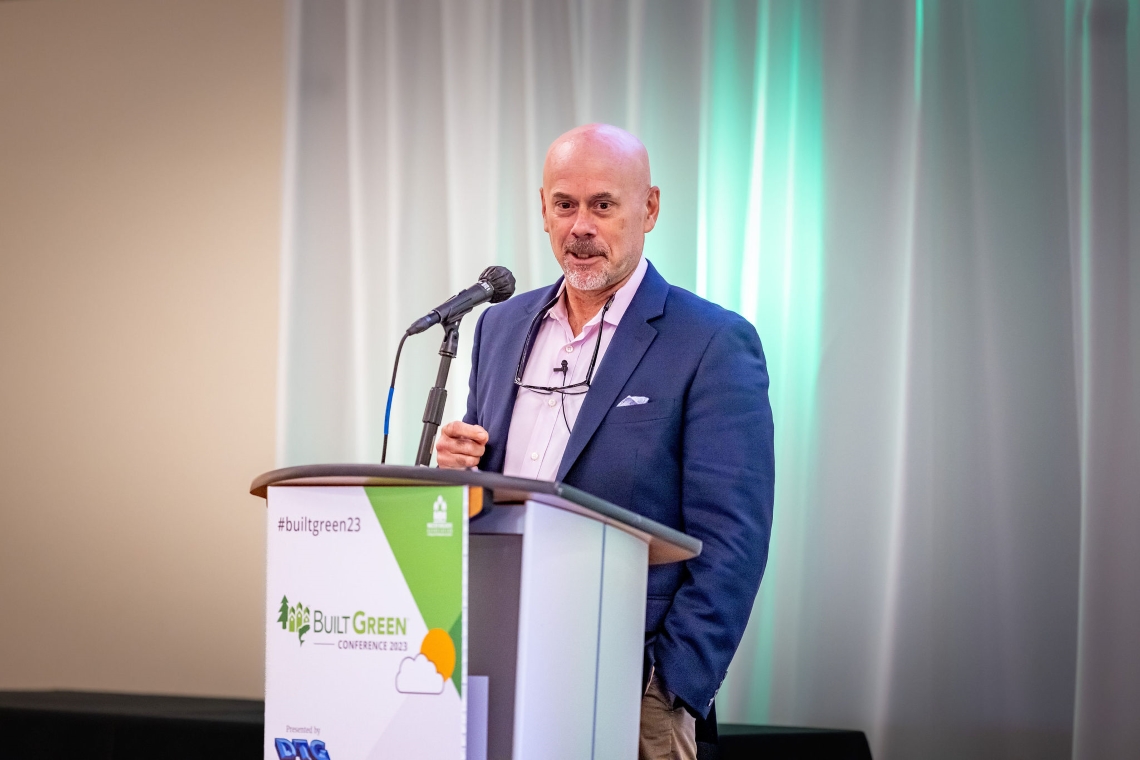
Our morning keynote, Roger Ballentine, President of Green Strategies Inc encouraged us to keep doing the work we are doing. He shared insight into the transition to a greener economy and explained that the market will continue to change to value climate solutions. He reminded us of this simple yet powerful message, that despite backlash from professionals, politicians, and sometimes the public, that “The most durable, money-making, value-creating strategy is still at the overlap of profit, planet, and people.” With his words attendees set out for a day of learning from each other and working together to do exactly that.
Session Highlights and Takeaways
This year we had four session tracks, along with the concurrent Built Green Project Basics programming. Conference tracks included Adapting Policy, Code Academy, Innovative Approaches, and Decarbonizing Case Studies. There was too much content to share it all here, but we’ve curated some session highlights to give you a taste.
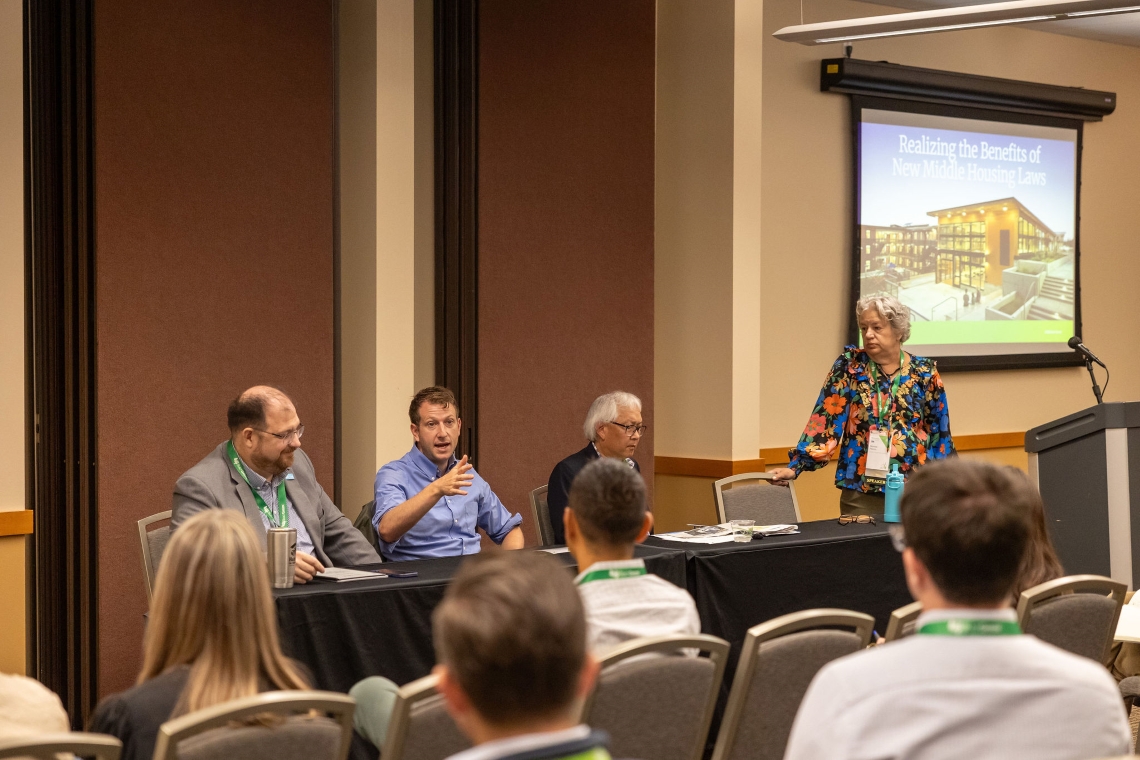
Washington State Representative Joe Fitzgibbon, Dave Osaki of WA Department of Commerce, and Ryan Donohue of Habitat for Humanity SKKC participated in an engaging panel discussion on the numerous land use updates that passed to support more Middle housing options for Washington residents. Rep. Fitzgibbon shared legislative context and detailed the broad-based and cross-sector support and advocacy efforts that led to all the middle housing initiatives being passed in the 2022-2023 session. He described the intersection of housing, transit, and the reduction of greenhouse gas emissions. Dave Osaki gave practical advice on work Dept. of Commerce is doing to help implement all the middle housing policies enacted. He supplied the numerous middle housing resources developed by their team to help jurisdictions navigate the changes, apply for grants, and access communications training. Ryan Donohue cataloged the benefits and opportunities that the middle housing policies bring to both market-rate and affordable housing builders by, “enabling more housing, in more places, for more people.” The middle housing policies provide more tools for builders and opportunities to build in the right places. Rep. Fitzgibbon closed the panel by expressing that this legislative session took a big step in the right direction, and it should be celebrated, but there is much more work to be done to be successful in meeting both housing and climate change needs in our region. We must work together and continue to advocate for those necessary changes.
Monica Guevara from Emerald Cities Collaborative hosted a panel discussion with James Metoyer, EnerCity Collaborative and Chris Young, CYC Mechanical where they dispensed valuable insights about including and supporting people of color in the just transition to a green economy. They spoke about the importance of facilitating ownership for diverse communities in the construction industry as well as fostering connection and growth to support people of color gaining knowledge and valuable skills as they enter this workforce. The session resulted in meaningful connections between audience members interested in hiring a more diverse workforce and setting them up for success in their careers. “Equity is a journey,” said Monica Guevara in her closing remarks. It is important to keep going no matter where you are starting from; even small steps toward a more equitable business make a difference.
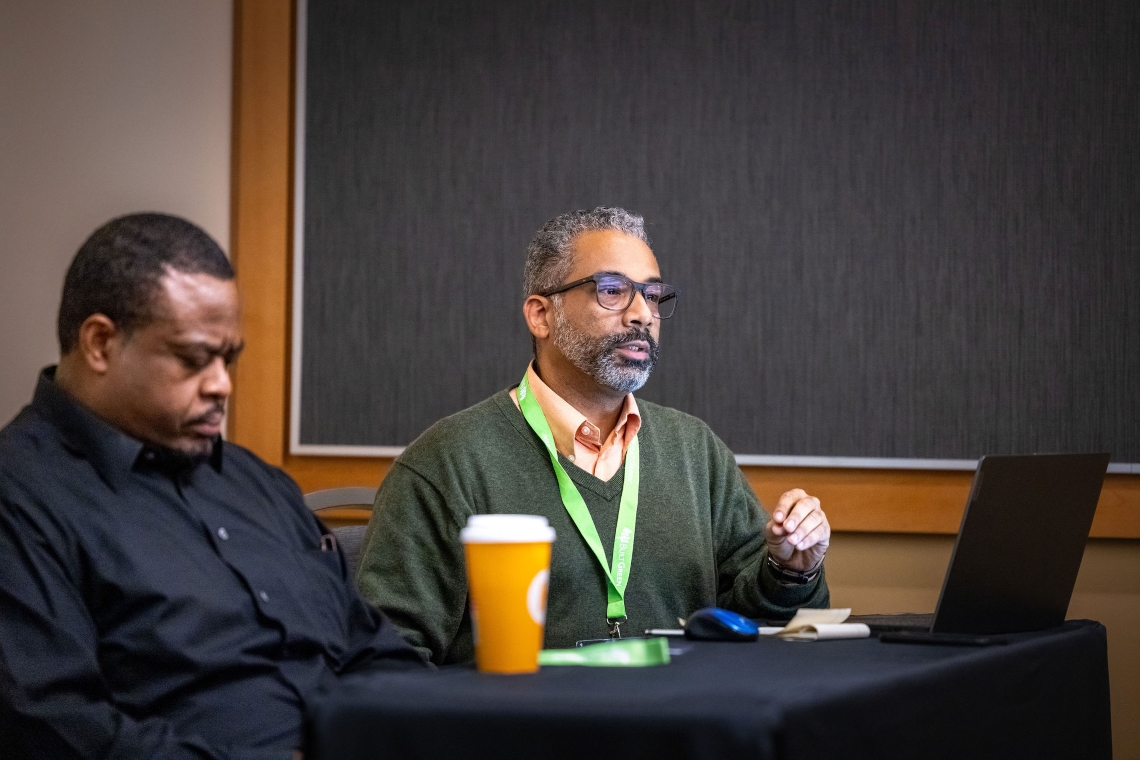
Mason Rolph, of Olympia Community Solar, spoke about their non-profit’s mission to halt the ongoing harm from climate change impacting frontline communities through residential solar installations. Mason shared that the main hurdles that prevents frontline communities from accessing the benefits of residential solar PV are infrastructure barriers, like multifamily and shaded buildings, upfront costs, and regulatory complications. By focusing their installation work on community solar projects they aim to overcome those barriers to the benefit of those who otherwise would not be able to put solar directly on their own roof. He invited those who are interested to visit their website to find more information on how to join their coalition building, stakeholder engagement, or community outreach efforts to advocate for less restrictive solar policy.
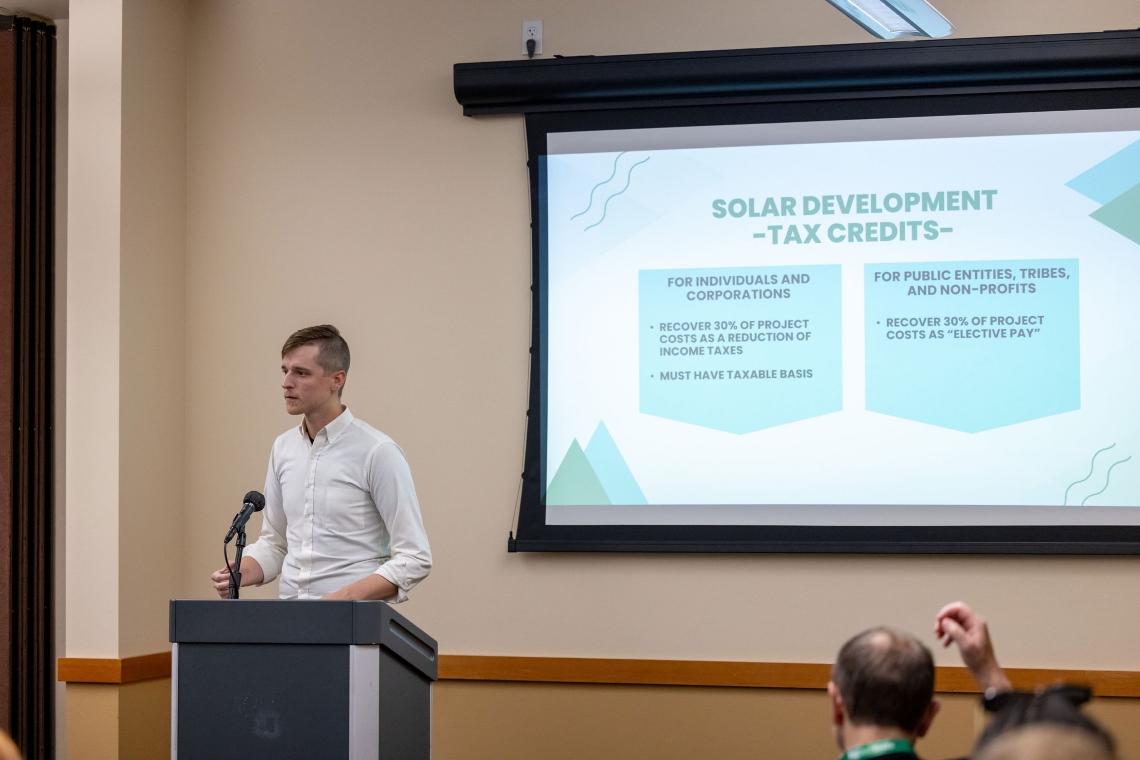
In an information-packed session from Talia Dreicer of TC Legend Homes, attendees were encouraged to look at embodied carbon within residential projects with the same emphasis that we currently place on operational efficiency choices. Talia presented her findings on tracking and reducing embodied carbon in multiple TC Legend Homes projects. She stressed the importance of working to create a baseline of embodied carbon for projects, which they do with the BEAM estimator from Builders for Climate Action, and then establishing emissions reduction goals from there. Talia pointed out that pursuing 5-Star certification should not be the only reason builders start the process of tracking and reducing their embodied carbon. By utilizing BEAM and seeing the embodied carbon of individual materials, TC Legend Homes discovered materials that they did not know existed. This information led them to make simple swap outs that resulted in significant embodied carbon reductions in their certified Built Green 5-Star projects. There is a huge opportunity for rapid reductions from simple material changes that the BEAM tool presents when used to compare options.
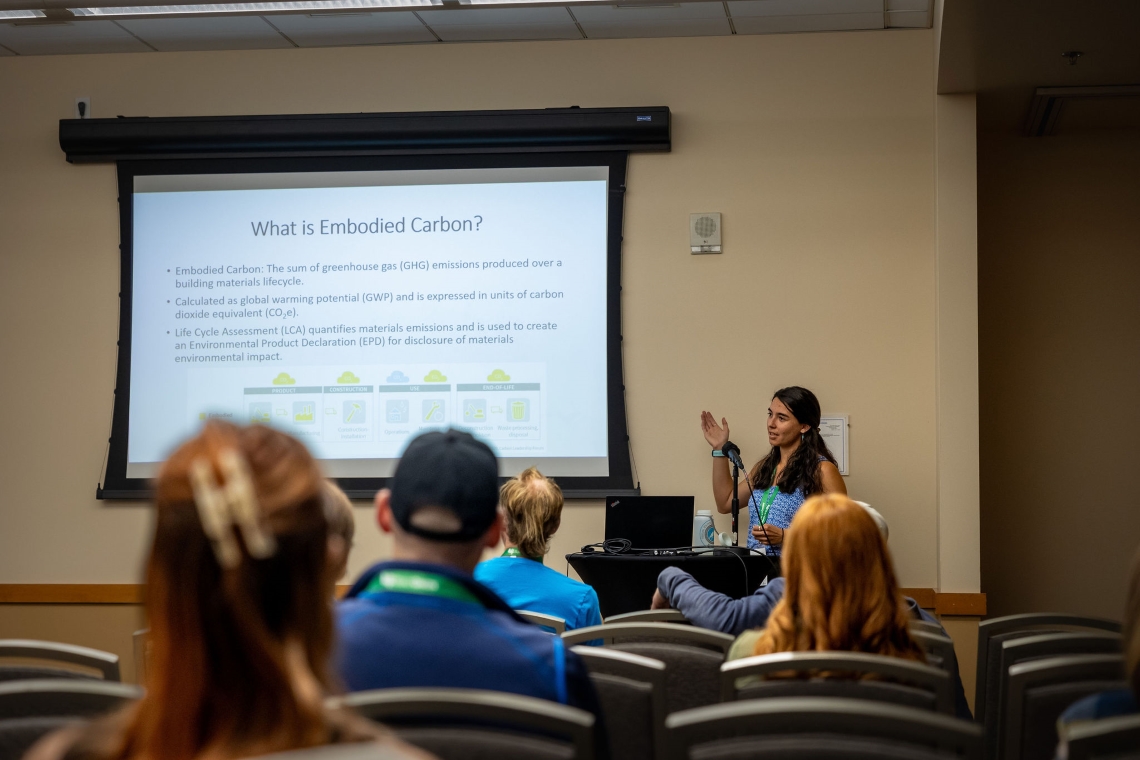
For contemporary indigenous housing in the PNW, it is essential to develop architecture that is highly responsive to the environment and engages the community it serves. Daniel Glenn, from 7 Directions Architects, presented four case studies of indigenous housing projects that did exactly that. Their firm designs with the tribal idea of the seven generations: three generations of our ancestors, our present generation, and three generations of our descendants. Some aspects of indigenous centered design are having a clustered community or village space to allow for gathering, longhouse inspired multigenerational housing, site analysis to allow for homes to be best suited to their specific climate and place, and including tribal traditions such as building canoes in the formation of the space. Another important step is training tribal members in construction so they can continue with this work in the future. This was an inspiring presentation that featured beautiful and interesting housing projects that serve an essential community in our area.
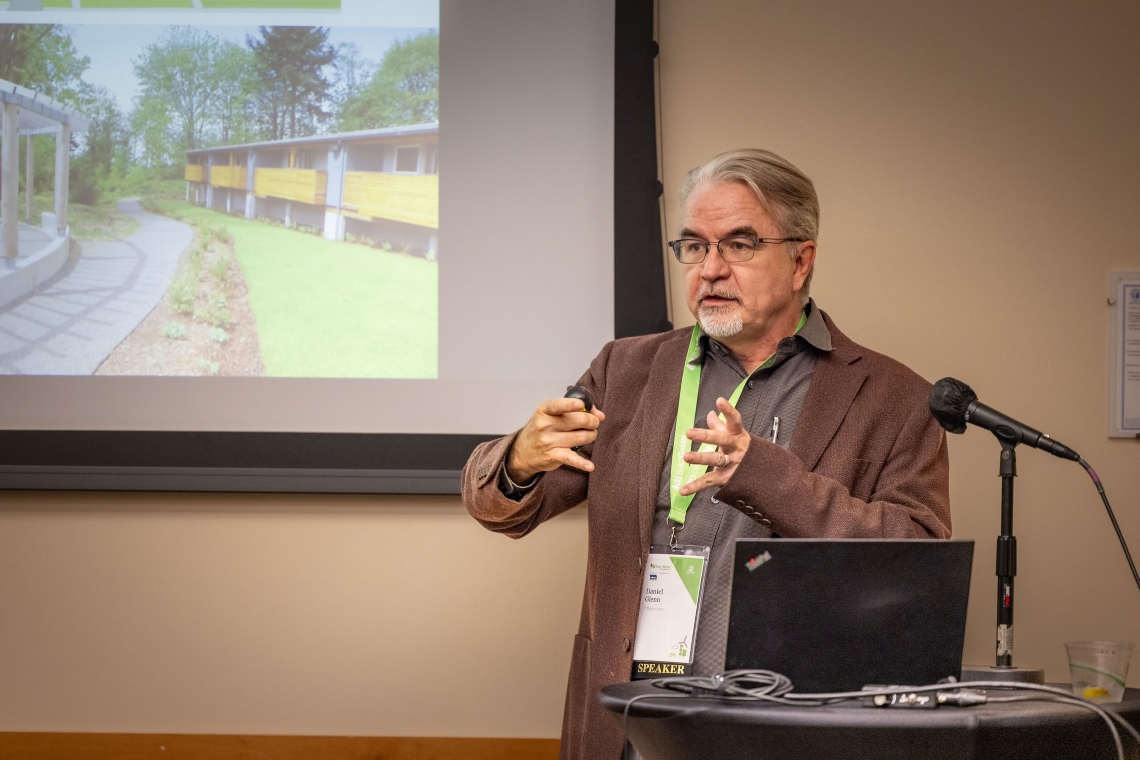
Practical Applications to Meet and Exceed the 2021 WSEC
Greg Lasher, of BetterBuilt NW, cataloged some of the problems that he has seen through his career as an energy rater when he conducts his testing that are caused by inefficient design. He stressed that integrated design can cost-effectively prevent expensive mistakes and necessary changes later in the build process to meet code or Built Green requirements. HVAC, plumbing, sustainability criteria, and occupant comfort should be considered early in the design process to reap the most rewards. To avoid installation mistakes or ineffective practices trades contractors need to be involved in the design process or charettes so they understand the intent of design or can help see vulnerabilities. Integrated design shifts the amount of design effort towards the beginning of the project prior to when construction documents are created to avoid costly redesigns and in-the-field fixes.
Greg identified the top 2021 WSEC credits to target with design to maximum cost-effectiveness:
- Heat Pump Water Heater (2 credits)
- HVAC Ducts Inside (0.5 credit)
- Compact Water Design (0.5 credit)
- Waste Water Heat Recovery (0.5 credit)
- Continuous Exterior Insulation (Base Code or 1.0 credit)
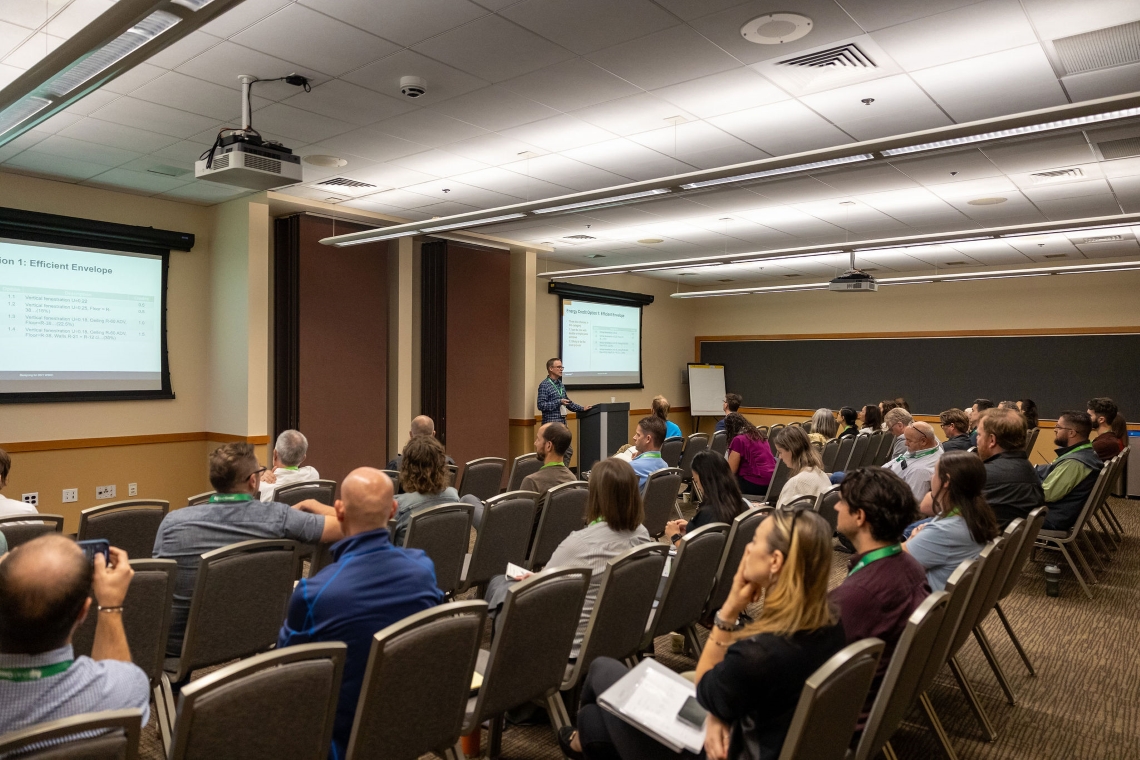
Alex Boetzel, of BetterBuilt NW, further emphasized that designing and building with high performance building techniques from the start is more cost effective for the builder and homeowner, than installing highly efficient, and more expensive, equipment that requires replacement in less than two decades. The new 2021 WSEC includes base code requires continuous exterior insulation that dramatically increases the performance and airtightness of the building’s thermal envelope and increases comfort. Alex explained that an exterior insulation system provides a thermal break, integrates with the air barrier installation, improves the overall wall U/R Value, mitigates condensation risks, and reduces sound transmission compared to standard wall framing assemblies for the life of the building. There are major design considerations and details that need to be considered to avoid unnecessary cost increases. He detailed resources like the upcoming 2021 WSEC Cookbook and WSU Energy Program's trainings and Code Compliance Calculator tools that builders can use to help make the code compliance process easier.
Gary Klein, of Gary Klein and Associates, gave two very interactive and illuminating breakout sessions dedicated to energy efficient, compact plumbing design. He laid out how the antiquated calculations and assumptions, from the 19th century, are still used to design plumbing systems in homes and buildings and do not account for our modern low-flow fixtures. This results in plumbing systems that fail to deliver the four key things people want from their hot water – it’s safe, reliable, reasonably priced, and they don’t have to wait for it. Through life-sized and volunteer-participated demonstrations Gary showed the common flaws in conventional plumbing design that leads to higher energy and water bills and complaints about long wait times and lack of water pressure. For hot water to be delivered to a tap it requires two times the volume in the pipe, including the cold water sitting in the pipe and the hot water that comes from the water heater. All the hot water that flows into the pipe that is not used represents wasted energy and money.
By reducing the volume and length of pipes and using a central core plumbing hot water distribution system, builders can reduce upfront costs by $1,000-$2,000 per single family home and $600-1,200 per multifamily dwelling unit.
During the building’s operation annual water bill savings can be $1000-$3,600. These changes also decrease energy use from hot water by 20-30% by reducing the energy lost from hot water that never reaches the tap. The forthcoming 2021 WSEC will have energy efficiency credits related to compact plumbing design that lowers upfront costs of building homes. Implementing this innovative approach will be a win-win for builders and homeowners.
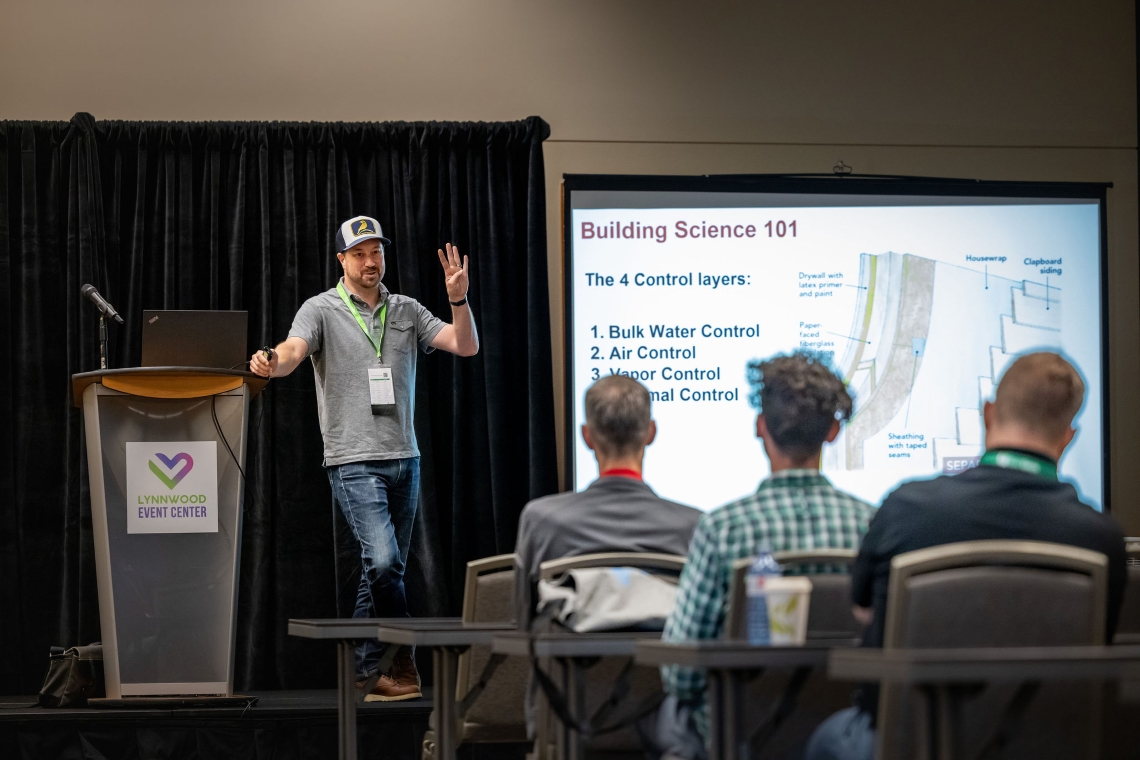
Built Green Project Basics was a specialty programming that was designed for those getting started with green building or high-performance building techniques. Cybil Tribie, of BEE Consulting, gave an overview of the Built Green certification and verification process and the benefits for projects that achieve certification. Josh Salinger, of Birdsmouth Design-Build, provided three sessions covering building science 101 content related to thermal envelope performance, HVAC installation details, and air sealing. You can look forward to offering a new variety of Built Green Project Basics topics being covered in future years of the conference.
Throughout the day conference attendees connected with each other to share stories and ideas and engaged with vendors, suppliers, and service providers in our Sponsors Expo to learn about how they could further enhance their Built Green projects. At lunch Sonja O’Claire, the Built Green Program Manager, presented the winners of the 2023 Built Green Hammer Awards. Then after a long day of learning, attendees enjoyed a mixer where they could continue their conversations, share ideas, and connect with each other over drinks.
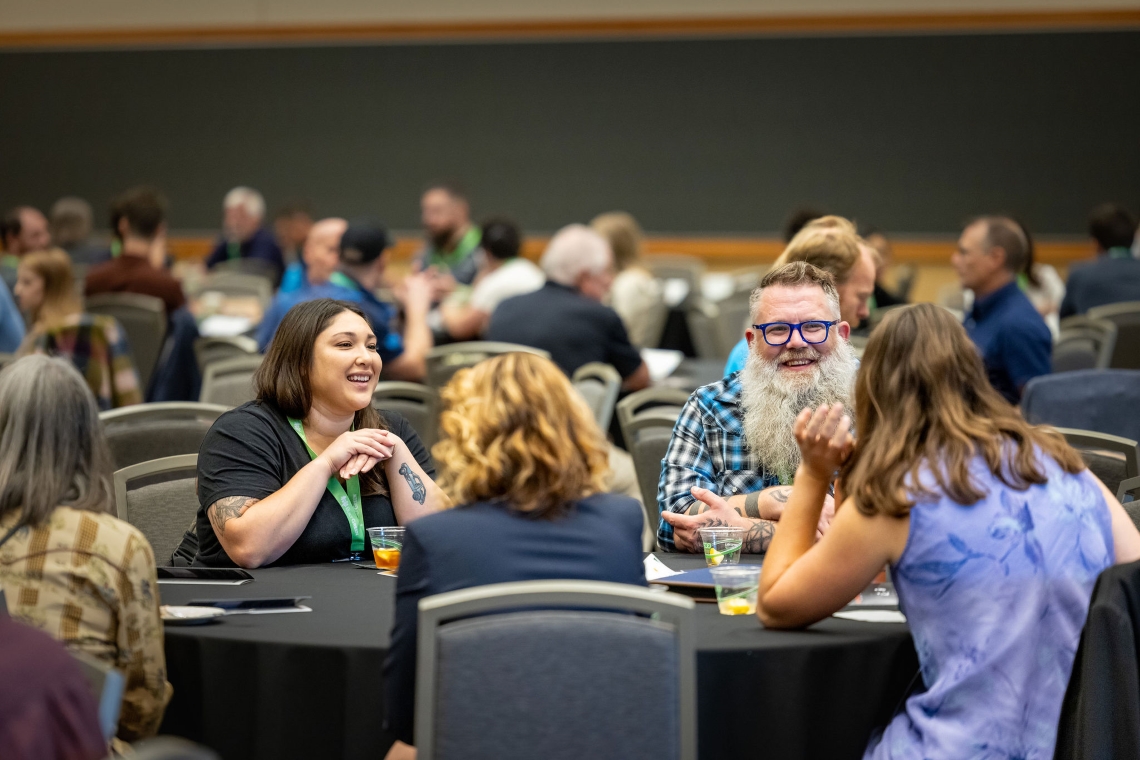
We hope everyone who came to the conference learned something new, connected with friends, and walked away feeling inspired. We look forward to seeing you next year!
